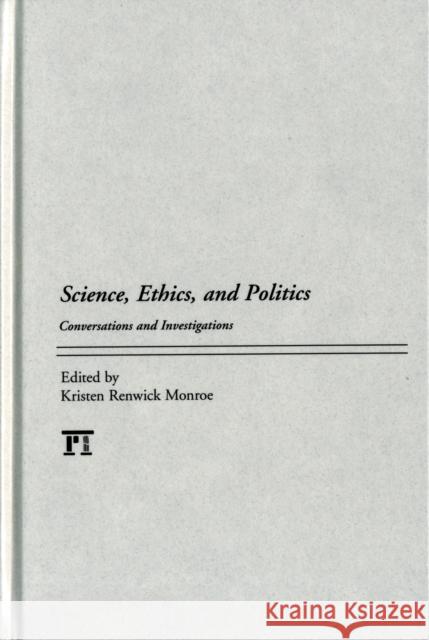Science, Ethics, and Politics: Conversations and Investigations » książka
Science, Ethics, and Politics: Conversations and Investigations
ISBN-13: 9781594519963 / Angielski / Twarda / 2011 / 288 str.
Science, Ethics, and Politics: Conversations and Investigations
ISBN-13: 9781594519963 / Angielski / Twarda / 2011 / 288 str.
(netto: 789,74 VAT: 5%)
Najniższa cena z 30 dni: 755,61
ok. 16-18 dni roboczych.
Darmowa dostawa!
Science and ethics are not usual bedfellows. Traditionally, ethical issues fall in the domain of the philosopher or the theologian and start with first principles. Courses on ethics usually stress the classics, telling students of the works of Kant or the Utilitarians, for example, and then posing ethical dilemmas to help the student work through the process of moral choice informed by knowledge of the canon in ethics. In this volume, we take a different tack. We present work that utilizes the tools of science-broadly conceptualized-to elucidate ethical issues, assuming that careful scientific analysis of ethical issues can reveal new insights. We supplement this with conversations with the authors-some of them preeminent scientists addressing issues of ethics, including two Nobel laureates and a Templeton Winner-to learn how they came to the study of ethics and ask how they conceptualize and think about ethical issues. This volume thus provides substantive insight into particular ethical issues, ranging from issues of torture during war to parents' obligations to children, but it also reveals how a scientific approach might lead to different insights into these issues than does a more traditional approach. This book is designed as a complement to traditional texts on ethics and should appeal to students (undergraduate and graduate) of ethics as well as to the general public.











